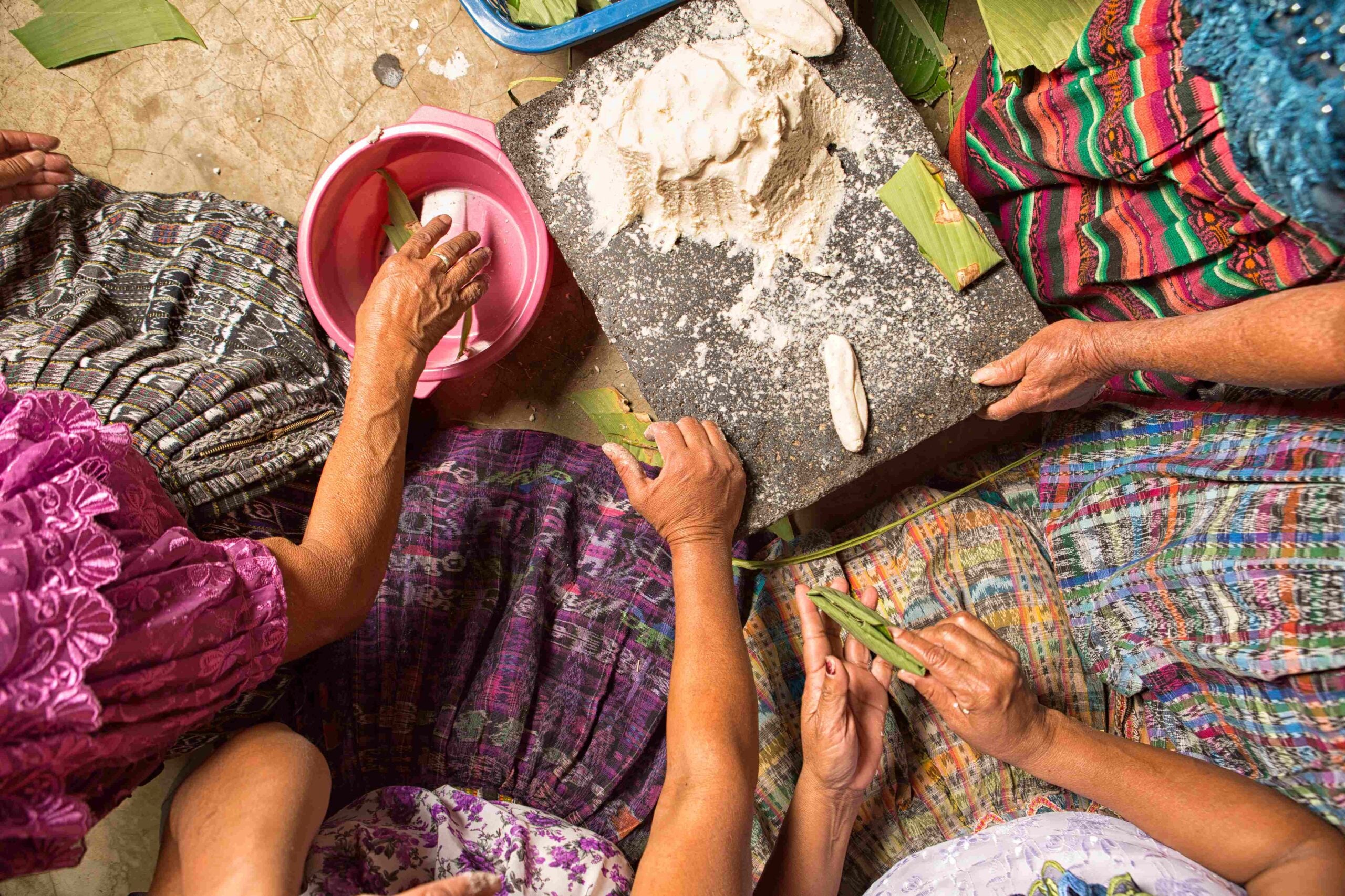It’s 8:00 in the morning, and Julia, a 21-year-old, can’t hide the joy and excitement she feels as she heads to the community hall for another day of training. The sun warms the morning, and the sound of water rushing in a nearby waterfall brings a refreshing breeze. She lives in the border area between Mexico and Guatemala, north of Huehuetenango. Alongside 570 women, she has improved her self-esteem, life skills, and social participation as part of a project to enhance the value chains of coffee and cardamom.
Her role as a promoter has allowed her to learn and, most importantly, to teach twenty-six people in her community, including fourteen men and twelve women. In addition to enhancing agricultural techniques and product quality, the project has also strengthened food security. They’ve created community gardens with native species of high nutritional value like chipilín or amaranth, and women have actively engaged in garden management.
The Value of Women’s Work
Women and youth living in rural areas of Guatemala face challenges in finding a source of income due to limited educational and economic opportunities. Typically, men take on leadership roles, while women tend to participate less. Julia has observed that the project has not only expanded economic opportunities but has also improved the self-esteem of rural women. It’s been positive to see how more and more men in the communities recognize the importance of women’s participation and contribution. Julia hopes that the girls growing up will have more opportunities than she had.
Challenges Faced by Rural Women
Despite Guatemala’s transition to a more urban population, the rural population remains significant. According to the 2018 census, women constituted 51.5% of the total population. Of all women, 45.8% lived in rural areas, and 54.2% in urban areas. Rural women make up 23.6% of the population, and rural indigenous women represent 13.5% of the total population.
Women in the country’s rural areas face multiple challenges, including access to education, economic opportunities, and agency capacity.
Challenges in Education
Literacy rates have increased in recent years, although women, particularly rural women, have lower levels than men. This is more pronounced among women over 24 years of age. For example, urban women (aged 15-24) had a literacy rate of 96.3% in 2018, compared to 91.2% for rural women. For women over 24, literacy in urban women was 84.3%, and for rural women, it was 66.6%. Rural women have the lowest years of schooling compared to urban women or rural or urban men. The following graph summarizes years of schooling for different population groups, highlighting the educational gaps rural women face. Among rural women, Mayan women have the lowest levels (average of 3.3 years of schooling).
Challenges in Economic Opportunities
Limited educational opportunities, in turn, limit economic opportunities in terms of formal job market participation, digital skills, or access to entrepreneurial opportunities. A significant portion of rural Mayan women (27%) are engaged in unpaid work, compared to, for example, 14.3% of rural Mayan men and 4.9% of non-indigenous rural men. This situation is related to the fact that 83% of rural women do not have social insurance coverage, compared to 47.6% of urban men.
Challenges in Agency Capacity
Agency capacity refers to a person’s ability to make decisions, influenced by the availability of options and their physical and psychological security. In the case of women, these conditions are reflected in factors like early pregnancy or gender-based violence. Early pregnancies are more prevalent in rural adolescents compared to urban ones. Thus, 52% of women reported having their first pregnancy between the ages of 15 and 19. In the case of urban women, this is delayed, as most of them report their first pregnancy (52.4%) between the ages of 20 and 45. Early pregnancies often lead to fewer opportunities to complete their studies. The availability of resources for sexual and reproductive health is more limited for rural women. According to data from the National Maternal and Child Health Survey (ENSMI 2015), 44.7% of rural women reported not using contraceptives, compared to 31.8% of urban women.
Opportunities for Empowering Rural Women
To achieve a country with greater well-being and development, active inclusion and opportunities for rural women are essential. Living in a rural area should be a choice, not associated with limited educational or economic opportunities.
In terms of education, challenges focus on extending coverage in secondary education to enable the youth to complete their studies and potentially pursue higher education. It’s also important to expand health services, particularly but not exclusively in sexual and reproductive health. This also requires community involvement to create a safe environment for rural adolescents and women to have a broader range of choices. Likewise, it is crucial to expand justice services for rural women so they can report and be handled more promptly in cases related to gender-based violence.
On the other hand, there are significant challenges in economic empowerment. Rural women have the lowest participation in the economically active population. Improving opportunities in this area requires extending the coverage and suitability of training programs for women who couldn’t complete their formal education. Many of the highly rural areas of the country are those that receive more remittances. Most migrants are young rural men, leaving women in charge of households. Often, remittances are used for consumption. However, it is crucial to find options that allow remittances to be used more productively and sustainably, enabling women to have greater economic autonomy.
Rural areas of the country are filled with women like Julia who are hoping to have the opportunity to improve their lives and contribute to their families and communities.


Leave a Reply